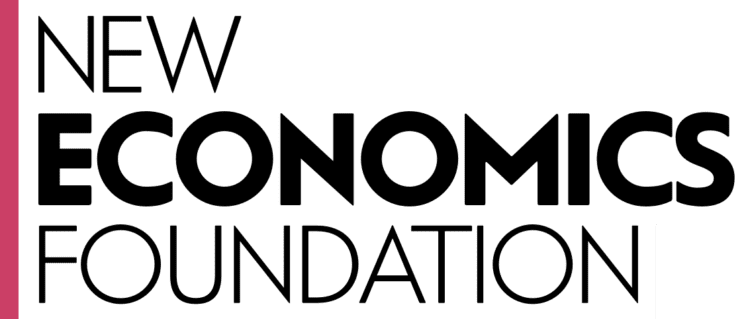Measuring the enabled contribution of Keep it Local for Economic Resilience
Research by NEF Consulting commissioned by Locality indicates the strong contribution made to local economies and employment by community anchor organisations.
The report, published at a time when large national organisations delivering government contracts are struggling, sets out the benefits of local commissioning of public services. It shows that not only do local organisations have the skills and capacity to deliver public services, there are huge benefits to the local economy when they do. It sets out how local authorities can ensure the billions of pounds they spend each year on services has maximum community and economic benefit.
In addition to the research, NEF Consulting produced a toolkit used in the Locality Keep it Local guide for community organisations.
Key Findings
- Approximately 1,400 full-time equivalent employment enabled by community anchor organisations.
- Approximately £120m of Enabled Gross Value Added to local economies.
Summary
As part of its Keep it Local for Economic Resilience project, Locality wanted to demonstrate the transformative role that community anchor organisations play in local economic resilience and to develop tools to evidence their impact. Locality commissioned NEF Consulting to examine the effect of the programme in a number of areas around England.
NEF Consulting developed a methodology called Enabled Contribution to help estimate local impact of community anchor organisations. This methodology is a subset of the approach developed by NEF Consulting to measure the economic, social and environmental impact of an organisation across its full value chain, Total Contribution.
Using this methodology, NEF Consulting identified enabled employment for the Keep it Local project at approximately 1,400 FTEs (Enabled Employment) and approximately £120m of Enabled GVA.
The findings represent a useful starting point for further research to fill the gaps identified below and firm up robustness in calculating the enabled economic contribution across the Keep it Local programme.
Our Approach
Two dimensions of the Keep it Local project’s enabled economic contribution were analysed: employment and Gross Value Added (GVA).
Enabled Employment is defined as the number of people working for tenant organisations within each community anchor organisation, expressed as the number of fulltime-equivalent (FTE) employees.
Enabled GVA is defined as the measure of the economic value added by community anchors’ tenant organisations.
Primary data was collected from 10 community anchor organisations across five local authorities: Bradford, Bristol, Calderdale, Hackney and Shropshire. Community anchor organisations surveyed their tenant organisations to ascertain the following information: activity type; floor-space; turnover; and employee numbers.
The approach included use of both the Enabled Contribution methodology, based on Total Contribution and the Local Multiplier 3 (LM3) methodology.
Findings
Enabled employment for the Keep it Local project was estimated at 1,399 FTEs (full time equivalents). Enabled GVA was estimated at £119,609,964. To allow for the fact that these figures are primarily estimates, they should be presented as approximately 1,400 FTEs (Enabled Employment) and approximately £120m of Enabled GVA, to avoid giving the impression of false accuracy.
The table of results for each region can be found in Locality’s summary report.
Limitations
Benchmarking these values (i.e. making claims on the efficacy of the Keep it Local project’s economic contribution in comparison with other projects) proves difficult for two reasons:
- There are, as yet, no known projects similar to Keep it Local for Economic Resilience that have undertaken an Enabled Contribution calculation. The approach has however been used by national organisations.
- The data used in this calculation contains numerous gaps, requiring the use of assumptions and secondary data. As such, there are limitations around confidence in the data validity.
For the majority of community anchor organisations, enough information was provided that calculations involving secondary data were possible. This level of data confidence was categorised as ‘moderate’. However, while HSA and SIC codes offer credible proxies for each sector, there is still a considerable element of assumption in their use.
Tony Armstrong, CEO of Locality:
“Organisations rooted in their local communities have deep knowledge and understanding of the area, strong existing relationships and the expertise to support people with complex needs. But their contribution goes much further – with huge impact on local jobs and the local economy. There is one sensible way forward for commissioning pubic services – keep it local.”
Next steps – Better Services, Stronger Economy
Locality is launching a set of free resources including three toolkits aimed at community organisations, councillors and commissioners, providing practical advice on how to tackle the barriers identified in the Keep it Local for Economic Resilience research and create a better local commissioning environment.
NEF Consulting produced a practical toolkit used included in the guide to measuring a community organisation’s impact on the local economy.
More information about Locality’s other free resources, visit their website here.
For more information
Download Locality’s summary report here.
See other pages in this site for more about:
- Total Contribution
- Executive briefing on Total Contribution
- Local Multiplier 3 (LM3)
- Executive briefing on Measuring Local Economic Impact using LM3
- Commissioning for outcomes and co-production
About Locality
Locality supports local community organisations to be strong and successful, so they can unlock the power in their local community to build a fairer society. Locality provides its network of over 500 members with hands-on support, peer-learning, tools and resources, and uses evidence from members to influence government policy. For more information visit locality.org.uk
